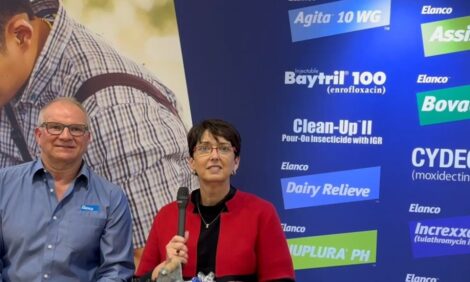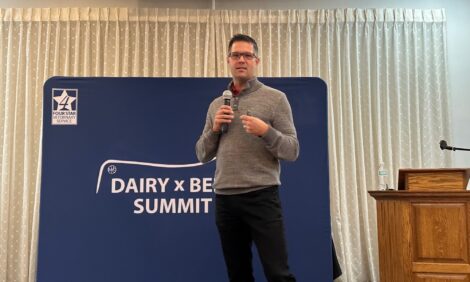



World Dairy Expo: ADM’s Bill Early the value of global collaboration
How the industry benefits from global product research
Bill Early, dairy business manager with ADM, was interviewed by The Dairy Site’s Sarah Mikesell in Madison, Wisconsin, USA at the World Dairy Expo.
ADM is global business. How does that benefit producers around the world?
As a global company, we collaborate with our colleagues overseas and they collaborate with us on technologies that are important in each of the specific regions of the world. As an example, they are at various levels of regulatory compliance when it comes to environmental issues. When it comes to methane mitigation and those types of technologies, they have a better benchmark there than we might have here in the US. Additionally, when we look at some of the compounds that we have available here, such as ionophores, Bovatec, Rumensin or antibiotic use, which have been restricted overseas for several years.
Their ability to have a better understanding of some of the vital molecules in terms of herbs, essential oils and botanicals and the intrinsic properties of those compounds, and how they can elicit positive responses relative to both production and health in the animal are interesting for us to learn.
We have an excellent heat dissipation product called Thermal Care that we have marketed in the United States for many years. They were looking for a solution in that space, so we collaborated on utilizing some of the technology we've had success with here in the United States.
One of the technologies which we are accenting here, that we've learned from our European colleagues, is Nexulin which is an encapsulated capsicum product. It works physiologically in the animal by driving glucose metabolism. When we look at the stressors the animal may have, whether that's calving, an immune stress or milk production, glucose is going to be shunted where it's needed.
As we can drive more glucose metabolism in that cow, we can then partition that glucose where it needs to go in terms of production. We initially had gotten some research data from our EU group and excellent responses on several studies in several countries, including the United States, but also in Portugal, New Zealand, France, Brazil and Canada.
Then we took that information and wanted to see if we could replicate the performance here in our management and dietary situations and we could. Again, because it's not diet-dependent technology, it's a physiological response for cows. We're getting almost 6 lbs. of milk per cow. We just had a study in Sao Paulo, Brazil at the University of Sao Paulo. They got about 7 lbs. of milk there. We are seeing very repeatable and consistent results with this product. Again, that's an example of technology that we incorporated from our global collaboration that has really benefited producers and the industry.
What does technology like this really mean for producers, Bill?
Nexulin is unique. It has an ability to drive milk production in a very cost effective and efficient way. It's very inexpensive to use, and it's very concentrated - it’s one gram per cow per day. In a thousand cow dairy, it's two pounds of product rate.
We typically would put it into a custom formulation for the dairy or we have a product called Prosponse MAX-GPS which is a one-ounce product which combines Nexulin and our Prosponse Yeast product. This provides one product to deliver that technology into the total mixed ration (TMR) as an example.



